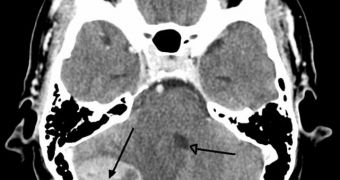In the latest issue of the American Association for Cancer Research's (AACR) journal Cancer Research, experts provide additional details of a new chemical agent, which they say shows great promise in treating the damage cancer tumors cause on the human brain.
This would be a remarkable achievement in the fight against this type of aggressive tumors. Certain forms of brain cancer act so fast, that they can lead to a patient's death within 2 to 4 months.
According to researcher Patricia S. Steeg, PhD, experts are making progress when it comes to treating cancer in general, especially below the neck. However, brain cancers are becoming increasingly aggressive and common.
She explains that these tumors are the main reason why breast cancer patients often don't make it, even if the original cancer went into remission. Steeg is the head of the Women’s Cancers Section at the National Cancer Institute's (NCI) Center for Cancer Research (CCR).
One of the things hampering the treatment of brain cancer is the very way in which our body is set up. When chemicals pass from the circulatory system into the brain, they need to pass through a selective filter called the blood-brain barrier.
There are very few chemicals that can permeate this line of defense, and the vast majority of cancer drugs are not amongst them. As such, these chemicals cannot reach the tumor site and attack cancer cells, says Steeg, who is also a deputy editor of another AACR journal, called Clinical Cancer Research.
In the new research, scientists learned that the pigment epithelium-derived factor (PEDF), a chemical used to treat breast cancer, also exerts a protective effect on neurons, preventing them from suffering cancer-induced damage.
As such, it could be that the substance will make a fine addition to chemical cocktails designed specifically to pierce the blood-brain barrier, and attack brain cancer cells on their own turf.
The new study was conducted using funds secured from the National Cancer Institute, the National Eye Institute and the US Department of Defense (DOD) Breast Cancer Research Program.

 14 DAY TRIAL //
14 DAY TRIAL //